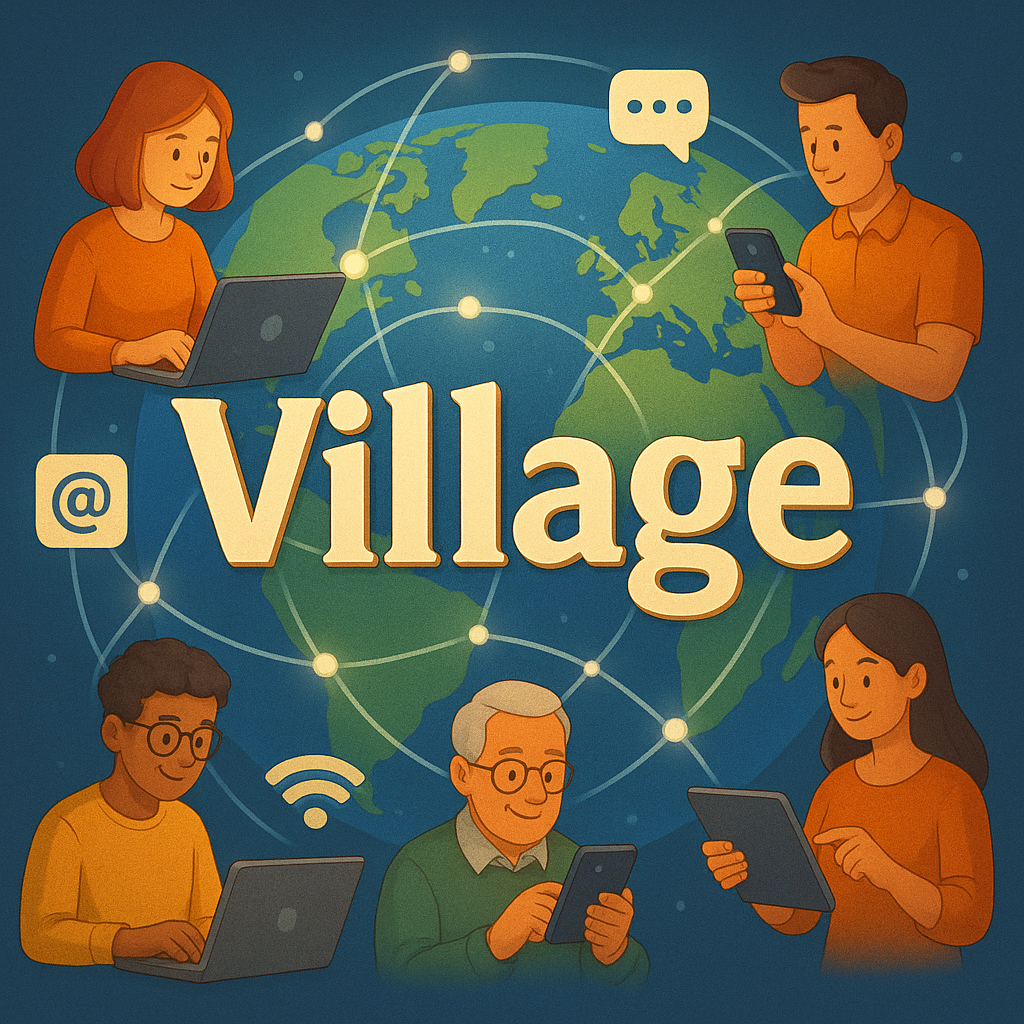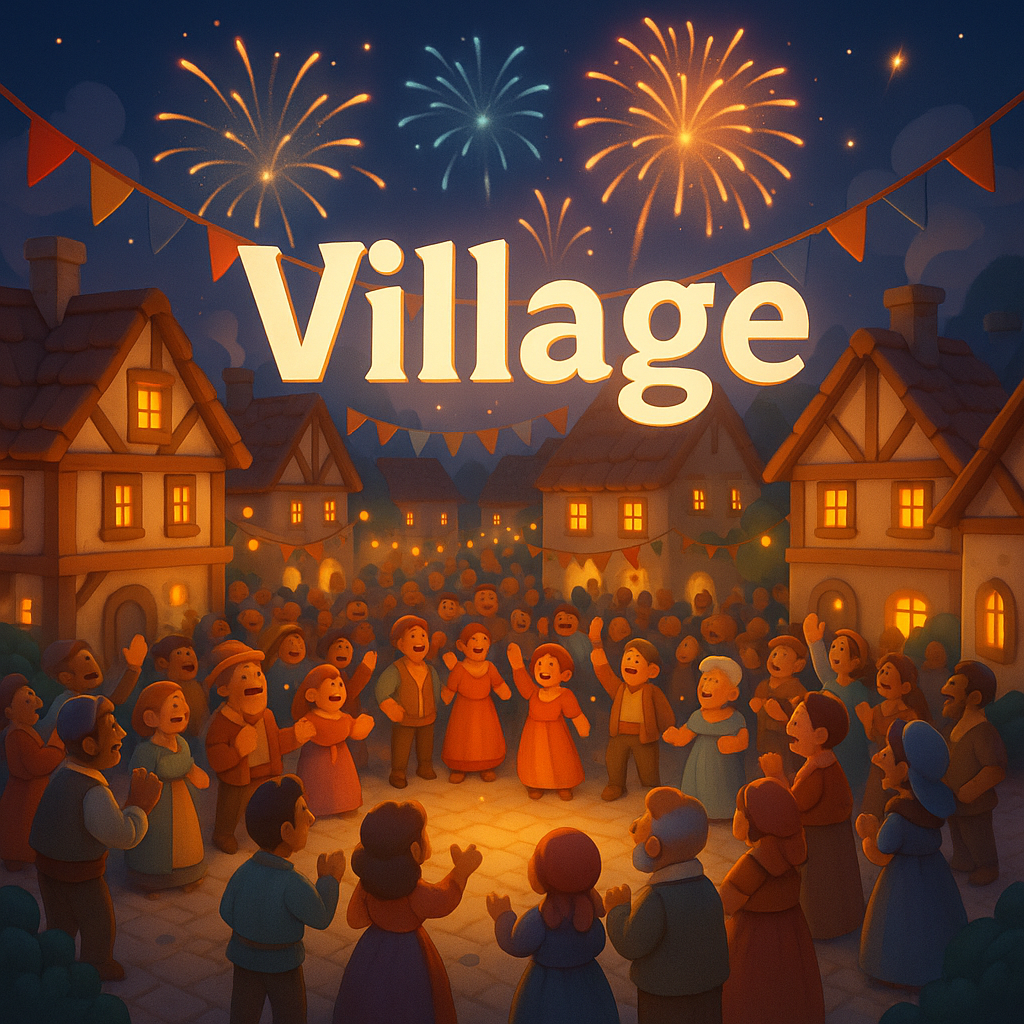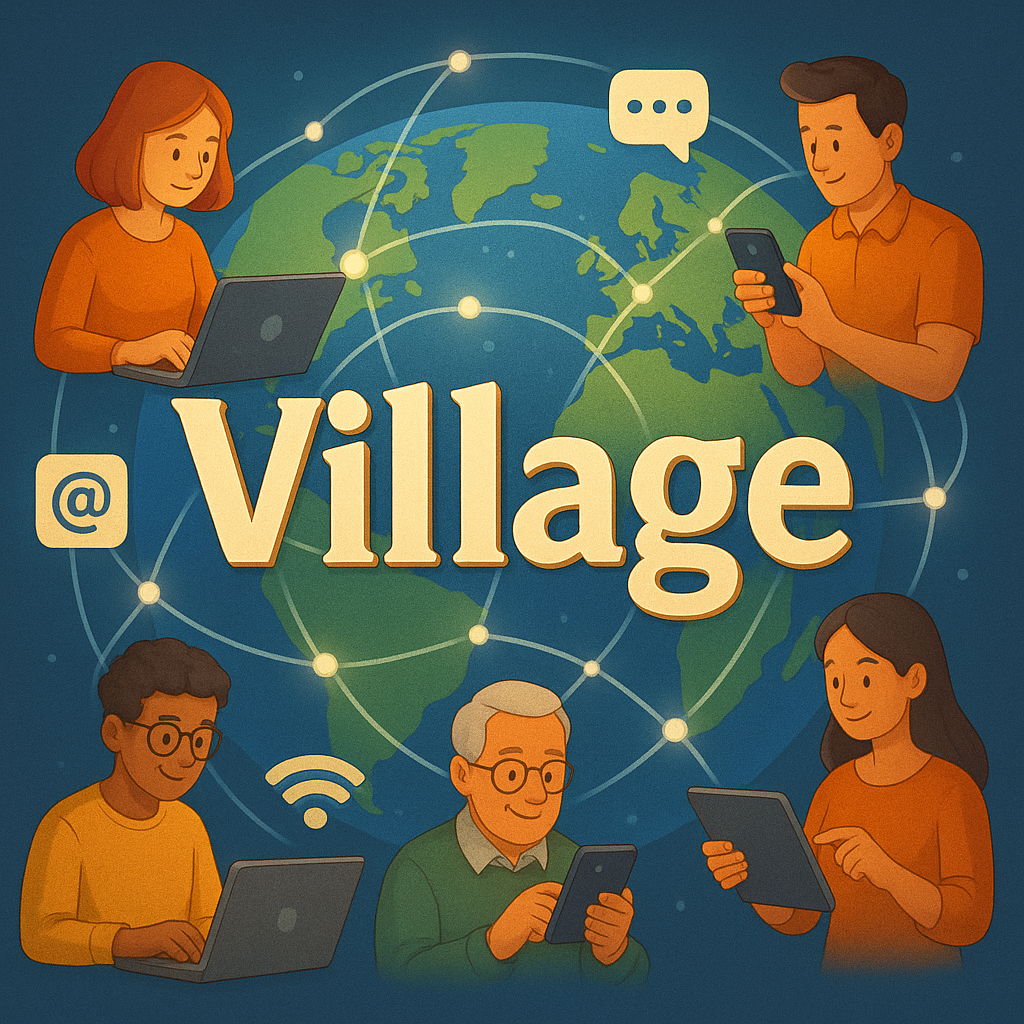Village
Definition
Village is a noun referring to a small community or group of houses in a rural area, typically smaller than a town but larger than a hamlet. It can also refer to the inhabitants of such a community.
Parts of Speech
- Noun
Pronunciation
American English
- IPA Pronunciation: /ˈvɪl.ɪdʒ/
- Respelling: VIL-ij
British English
- IPA Pronunciation: /ˈvɪl.ɪdʒ/
- Respelling: VIL-ij
Etymology
The word "village" originates from Old French "village," meaning "a group of houses or dwellings," derived from Latin "villaticum," referring to a farmstead or estate. It ultimately comes from "villa," meaning "country house."
Derivatives
- Villager (noun)
- Village-like (adjective)
- Villagery (noun, archaic)
- Villagehood (noun)
- Microvillage (noun)
Synonyms
- Hamlet
- Community
- Settlement
Antonyms
- City
- Metropolis
- Urban area
Usage
The noun "village" is often used to describe small rural communities, as in "She grew up in a quaint village surrounded by farmland." It can also describe a collective identity, as in "The village came together to celebrate the festival."
Related Terms
- Town: A larger settlement, typically with more infrastructure than a village.
- Hamlet: A small settlement, usually smaller than a village.
- Rural: Relating to the countryside rather than the city.
Detailed Definitions
Noun
- A small rural community or settlement: Refers to a cluster of houses and associated buildings.
- Example: "The village had only one grocery store and a post office."
- The inhabitants of such a settlement: Refers collectively to the people living in a village.
- Example: "The entire village gathered for the celebration."
- In a metaphorical or global sense: Refers to a close-knit or interconnected group.
- Example: "The internet has made the world feel like a global village."
village



🇨🇳 Mandarin (Simplified Chinese)
- 村
- IPA: /ʈʂʰwan/
- English Respell: Cūn
- 乡村
- IPA: /ɕi̯aŋ˥˩ ʈʂʰwan/
- English Respell: Xiāngcūn
🇮🇳 Hindi
- गाँव
- IPA: /ɡɑːʋ/
- English Respell: Gaav
- ग्राम
- IPA: /ɡɾɑːm/
- English Respell: Gram
🇪🇸 Spanish
- Pueblo
- IPA: /ˈpweβlo/
- English Respell: Pueblo
- Aldea
- IPA: /alˈde.a/
- English Respell: Aldea
🇫🇷 French
- Village
- IPA: /vi.laʒ/
- English Respell: Village
- Hameau
- IPA: /a.mo/
- English Respell: Hameau
🇸🇦 Modern Standard Arabic
- القرية
- IPA: /al'qariːa/
- English Respell: Al-Qarya
- الديرة
- IPA: /aldˈdiːra/
- English Respell: Al-Deera
🇧🇩 Bengali
- গ্রাম
- IPA: /ɡɾam/
- English Respell: Gram
- পল্লী
- IPA: /pɔl.li/
- English Respell: Palli
🇷🇺 Russian
- Деревня
- IPA: /dʲɪˈrʲevnʲə/
- English Respell: Derevnya
- Село
- IPA: /ˈsʲelə/
- English Respell: Selo
🇵🇹 Portuguese
- Vila
- IPA: /ˈvi.lɐ/
- English Respell: Vila
- Aldeia
- IPA: /aɫˈdɐj.ɐ/
- English Respell: Aldeia
🇮🇩 Indonesian
- Desa
- IPA: /d̪əˈsa/
- English Respell: Desa
- Kampung
- IPA: /ˈkampuŋ/
- English Respell: Kampung
🇩🇪 German
- Dorf
- IPA: /dɔrf/
- English Respell: Dorf
- Gemeinde
- IPA: /ɡəˈmaɪndə/
- English Respell: Gemeinde
🇯🇵 Japanese
- 村
- IPA: /mura/
- English Respell: Mura
- 田舎
- IPA: /inaka/
- English Respell: Inaka
🇻🇳 Vietnamese
- Làng
- IPA: /laːŋ˧˥/
- English Respell: Làng
- Thôn
- IPA: /tʰoːn˧˥/
- English Respell: Thôn
🇰🇷 Korean
- 마을
- IPA: /ma.ul/
- English Respell: Maeul
- 촌
- IPA: /t͡ɕʰon/
- English Respell: Chon
🇹🇷 Turkish
- Köy
- IPA: /køj/
- English Respell: Köy
- Kasaba
- IPA: /kaˈsaba/
- English Respell: Kasaba
🇵🇰 Urdu
- گاؤں
- IPA: /ɡɑːʋ/
- English Respell: Gaav
- دیہات
- IPA: /d̪ihaːt̪/
- English Respell: Dehaat





